Participation site: UCL Queen Square Institute of Neurology (UCL IoN) and the National Hospital for Neurology and Neurosurgery
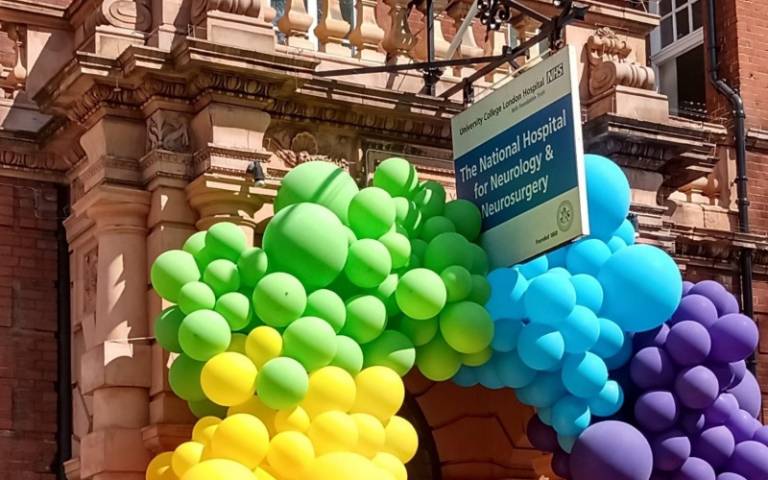
ICGNMD investigators, co-investigators, fellows and key staff:
Professor Mike Hanna, ICGNMD Lead Principal Investigator & Director
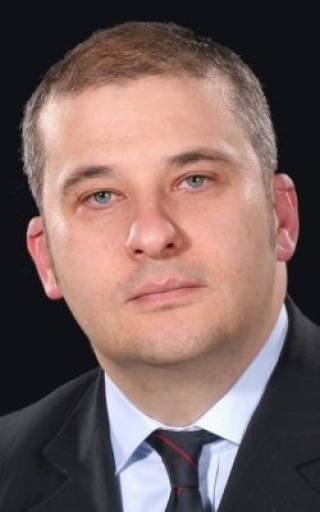
Professor Michael G Hanna, Director of the International Centre for Genomic Medicine in Neuromuscular Disease is a Consultant Neurologist with a longstanding clinical and research interest in muscle diseases and is head of the Queen Square muscle disease clinical service. Professor Hanna is also Director of the UCL Institute of Neurology-Newcastle University Centre for translational research in neuromuscular diseases.
Professor Hanna has a long-standing research interest in elucidating molecular genetic mechanisms in mitochondrial diseases and muscle/neurological channelopathies and also in the development of improved genetic diagnostics. He leads the UK national diagnostic reference laboratory and advisory service for channelopathies and co-leads a similar service for mitochondrial diseases. He has published over 170 peer reviewed original research papers including New England Journal of Medicine, American Journal of Human Genetics, Lancet Neurology and Lancet, and has held the position of deputy Editor of the Journal of Neurology, Neurosurgery and Psychiatry since 2003.
Iris Profile Professor Mike Hanna
Professor Mary Reilly, ICGNMD Fellowships Lead & Co-Director
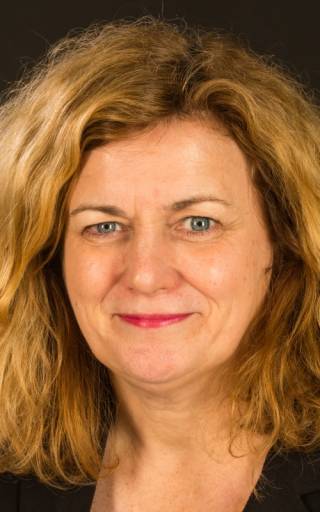
In addition to ICGNMD Co-Directorship, Professor Reilly leads on ICGNMD’s UK and international Fellowships, working closely with ICGNMD Fellows Tutor Dr Rob Pitceathly and UK Fellows Leads Professor Rita Horvath (Cambridge) and Professor Bobby McFarland (Newcastle). Professor Reilly is Head of the Division of Clinical Neurology at the UCL Queen Square Institute of Neurology.
Professor Henry Houlden, ICGNMD Genetics Lead & Co-Director
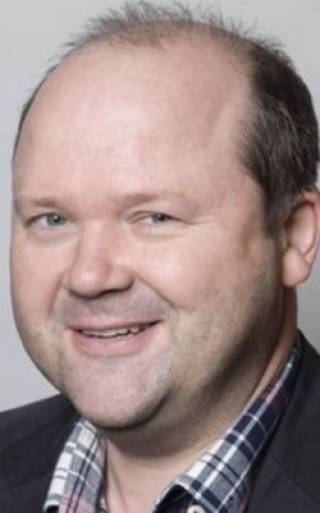
My ICGNMD role focuses on management of genomic analysis of ICGNMD samples using a combination of wet lab and bioinformatic techniques.
Our laboratory works on neurogenetics with a particular interest in inherited childhood and adult onset neurological disorders such as neuromuscular conditions, spinocerebellar ataxia, spastic paraplegia and movement disorders such as multiple system atrophy (MSA); particularly in diverse populations. We integrate new gene discovery with exome and genome sequencing identifying disease genes such as CANVAS, VWA1, SCA11, SCA15, GRIA2 and GAD1, with functional experimental validation in human tissue and other model systems. This allows us to diagnose many families to allow effective management and treatment. We have an international lab and clinical team, sharing students and young clinicians who come for exchange visits to UCL allowing joint research projects and publications. We are keen to collaborate to investigate families with neurological disorders. Our overall goal is to develop new therapeutics based on an improved understanding of disease pathways and in children and adults. We are very open to collaboration.
Dr Rob Pitceathly, Co-Investigator, Fellows Tutor & Database Designer
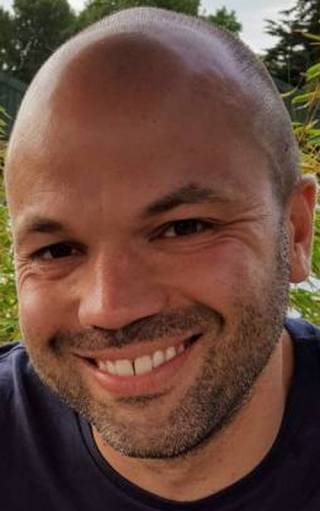
My research combines clinical observations with laboratory approaches to better understand the molecular basis and pathophysiological mechanisms of primary mitochondrial diseases, with the ultimate aim of developing treatments. As part of the International Centre for Genomic Medicine in Neuromuscular Diseases (ICGNMD), we are working with collaborators across five continents to establish the global prevalence and genotype-phenotype architecture of mitochondrial diseases. This will enable better understanding of disease mechanisms, thereby facilitating the development of new treatments, and help establish trial-ready mitochondrial disease patient cohorts.
Iris Profile Dr Rob Pitceathly
Dr Gita Ramdharry, ICGNMD Co-Investigator & International Fellow Supervisor
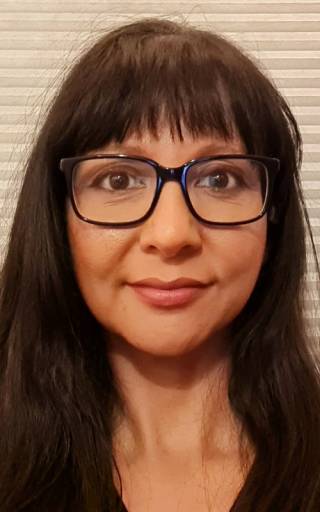
ICGNMD research/role description: I am a co-investigator for the IGCNMD programme working with the team at the Queen Square Centre for Neuromuscular Diseases. I am a PhD supervisor for one of the fellows and provide teaching and guidance on aspects of rehabilitation and supportive care for people with neuromuscular diseases.
Relevant interests/other roles: I am a Consultant Allied Health Professional in Neuromuscular Diseases at the national Hospital for Neurology and Neurosurgery, Honorary Associate Professor at UCL Institute of Neurology, and Chair of the Equality, Diversity and Inclusion committee for the Department of Neuromuscular Diseases, UCL. I lead the Neuromuscular Rehabilitation Research group at Queen Square, leading exploratory studies and trials of rehabilitation to optimise function and quality of life for people with neuromuscular conditions. My specific interests are in movement physiology and biomechanics, physical activity/exercise interventions, orthotics and self-management.
Professor Antonella Spinazzola
IRIS Profile Professor Antonella Spinazzola
Dr Lindsay Wilson, ICGNMD Research Centre Manager
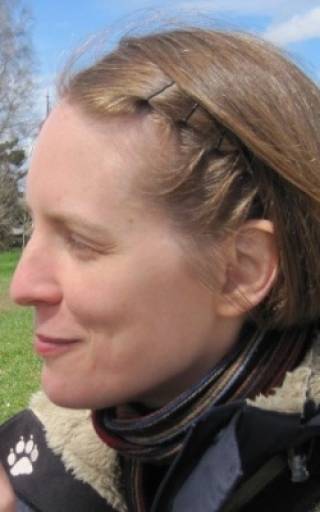
I am responsible for the successful delivery of the ICGNMD and work with our international partners to ensure our Study is managed responsibly. For the UK, I oversee both the international award and our UCL-sponsored HRA-approved study to recruit UK-based participants to the ICGNMD cohort. I have designed study paperwork and protocols and worked with international partners to ensure we align approaches and standards internationally, while respecting local ethics. I manage genetics and informatics planning and work with local partners to address any practical issues and explore opportunities for additional funding. I have a particular interest in designing practical data sharing policies to accommodate international needs and regulations while also allowing partners to collaborate effectively.
The ICGNMD is a great example of outstanding researchers connecting globally to drive international progress in the genomics of rare diseases, through growing capacity and skills, building a lasting resource for research and engaging with key stakeholders. It is only by such international efforts that we can deliver effective and accessible solutions for all people living with inherited neuromuscular diseases.
Dr Jana Vandrovcova, ICGNMD Lead Informatician
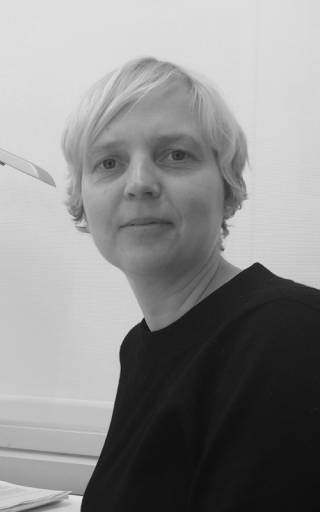
My role, together with the bioinformatics team, is to build a bespoke pipeline that will be applied to genomic data collected through ICGNMD. To ensure easy and transparent analysis of genetic variants I also develop training materials and support ICGNMD fellows in bioinformatics and genomics, especially in variant interpretation and reporting.
I am a bioinformatician and a human geneticist with substantial experience in genomics data analysis, service provision and delivering bioinformatics training. At the Institute of Neurology, I have a leading role in several large projects which focus on the implementation of new methods for mutation discovery in neurological disorders.
Iris Profile Dr Jana Vandrovcova
Dr Stephanie Efthymiou, ICGNMD Research Fellow & Senior Research Technician
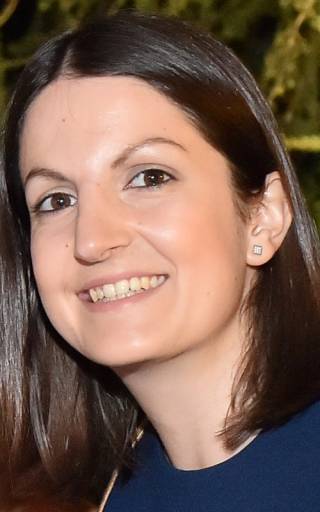
I am an ICGNMD Post-doctoral Research Fellow and Senior Technician. My ICGNMD roles include implementing and refining robust ICGNMD genetic testing protocols and ensuring smooth progress via careful sample and data curation. I bring extensive experience through my work for the Wellcome Trust Strategic Award for Synaptopathies and my research on the genetic basis of neurodevelopmental disorders. In 2021 I completed my PhD on the genetic and functional basis of rare demyelinating neuropathies, under the supervision of ICGNMD’s Professor Houlden and UCL Institute of Neurology’s Dr Conceicao Bettencourt
Dr Heba Morsy, ICGNMD Research Fellow & Senior Research Technician
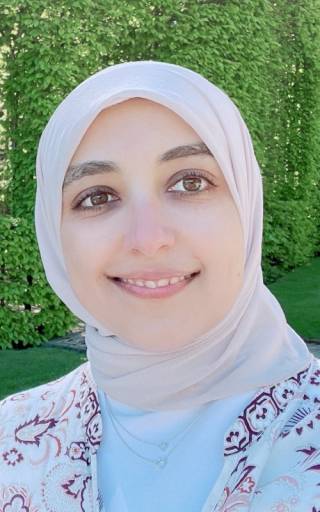
Ms Natalia Dominik, ICGNMD Research Technician & PhD Student
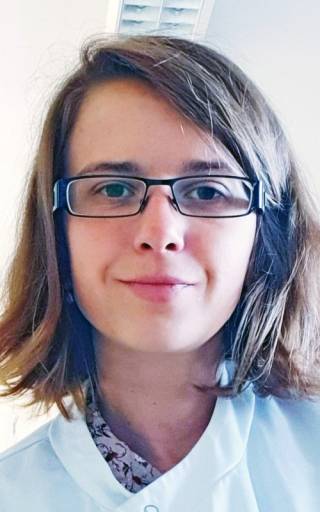
Dr Hallgeir Jonvik, ICGNMD Data Manager
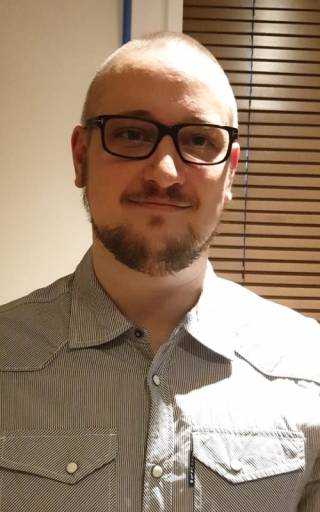
Ms Christine Oldfield, ICGNMD Administrator, web and events support
Chris's ICGNMD role includes logistics, event and meeting planning, website administration and general administration. christine.oldfield@ucl.ac.uk
Ms Zoe Scott, ICGNMD Administrator, finance and governance support
Zoe's ICGNMD administrative role includes grant management, HR support, procurement, website administration and financial administration. Z.Scott@ucl.ac.uk
- Clinical neuromuscular expertise, patients and geographical region:
The UCL Queen Square Institute of Neurology (UCL IoN) is linked closely to the National Hospital for Neurology & Neurosurgery (NHNN). Part of University College London Hospitals’ NHS Foundation Trust, NHNN is the UK’s largest dedicated neurological and neurosurgical hospital, receiving patients referred from across the United Kingdom and overseas. NHNN provides comprehensive services for the diagnosis, treatment and care of all conditions affecting the brain, spinal cord, peripheral nervous system and muscles. Clinical services include specialist neurosurgery and neuro-rehabilitation units, the UK’s first interventional MRI scanner, and the only neuromedical ITU in the country.
UCL IoN has an international reputation for neuroscience. Its mission is to translate neuroscience discovery research into treatments for patients with neurological diseases. Important research centres based at the institute, in addition to the ICGNMD, include the Wellcome Centre for Human Imaging. The Queen Square Centre for Neuromuscular Disease (CNMD) encompasses state-of-the-art clinical and research facilities that include an innovative clinical neuromuscular phenotyping centre and experimental trials centre. Through interdisciplinary approaches delivered by outstanding clinical, nursing and allied health professional staff, the CNMD seeks to:
- provide highest quality, safe, patient-centered clinical care for patients with neuromuscular diseases, through iterative, multidisciplinary team working;
- provide excellent education and training for all staff and stakeholders;
- undertake world-class research to understand disease mechanisms and develop treatments for patients with neuromuscular diseases.
With over 100 clinical and research staff, the CNMD assess over 6000 neuromuscular disease patients a year, with conditions such as muscle disease, neuropathy, myasthenia gravis and motor neurone disease. Highly specialised care is provided to patients via Nationally Commissioned Highly Specialised Services for Mitochondrial Diseases, Muscle Channelopathies and McArdle Disease. UCL Queen Square CNMD’s new Neuromuscular Complex Care Centre provides an innovative, streamlined care model for patients with disabling complex neuromuscular diseases.
NHNN and the UCL Queen Square Institute of Neurology are geographically situated next door to the UCL Great Ormond Street Institute of Child Health (UCL GOS ICH) and Great Ormond Street Hospital (GOSH) and form part of the same School of Life and Medical Sciences. UCL GOS ICH is also an ICGNMD partner, reflecting the very strong clinical and academic research links between the two UCL sites.
- Genetics and science expertise and facilities:
CNMD research income has exceeded £30 million in the last ten years, including from the Medical Research Council (MRC), Wellcome, NIHR and NIH (USA). In that time, we have published over 1500 peer-reviewed research publications, including in Lancet, Journal of the American Medical Association, New England Journal of Medicine, Nature journals, Lancet Neurology, American Journal of Human Genetics and Brain.
We engage in a large number of clinical trials: in the last 10 years we have led or participated in over 150 natural history studies and interventional trials, including those generating European Medicines Agency and FDA drug licences. Over 10,000 patients are enrolled in our deeply-phenotyped patient cohorts and our national patient muscle cell biobank contains approximately 10,000 cell lines.
Genetic analysis is an important component of CNMD’s clinical and research work. ICGNMD Co-Director Professor Henry Houlden leads the UCL Neurogenetics Laboratory and NHS Neurogenetics Clinical Service and Co-Leads the Genomics England Clinical Interpretation Partnership (GeCIP) Neurology Domain. CNMD groups have together linked over 1000 families to the Genomics England 100,000 Genomes project and the NIHR translational resource and, in the last ten years, discovered 41 neuromuscular disease genes. Central to its genetics activity are the CNMD’s senior informaticians and staff qualified in clinical genomics as well senior scientists involved in functional expression of new variants.
CNMD’s clinical and scientific activities go hand-in-hand with patient engagement. Activities include frequent patient engagement days, public outreach activities and developing a range of resources with patients.
Education and training is also integral to CNMD: since 2009 over 90 clinical and non-clincial students have been trained in neuromuscular disease research. An MSc course in Neuromuscular Disorders was launched in 2015 and continues to attract students from around the world from clinical, basic science and Allied Health Professional backgrounds. Annual update courses providing clinical updates attract thousands of attendees and we co-host an annual international Neuromuscular Translation Conference in partnership with Muscular Dystrophy UK.
- Current research programmes:
Professor Mike Hanna’s research focuses on discovering molecular genetic mechanisms in mitochondrial diseases and muscle/neurological channelopathies, in addition to developing improved genetic diagnostics.
Professor Mary Reilly’s research centres on understanding the genetic basis of inherited neuropathies including Charcot-Marie-Tooth disease and related disorders, familial amyloid polyneuropathy and complex inherited neuropathies. This includes novel variant and gene discovery and validation, basic science investigating disease mechanisms, developing new outcome measures and biomarkers for disease monitoring including MRI, and natural history studies. With the emergence of gene therapies, the aim is to prepare for clinical trials.
Professor Henry Houlden’s research interests include neurogenetics, peripheral nerve disease, neurodegeneration, ataxias and neurorehabilitation. Research includes studies to combine genetics, functional cell biology and neuropathology to interrogate neurological disorders.
Dr Rob Pitceathly’s lab is focused on mitochondrial biology and translational science, including (i) understanding the global prevalence and genetic architecture of mitochondrial diseases, (ii) exploring the role of cardiolipin in mitochondrial health and disease, and (iii) generating effective mitochondrial disorder therapies.
Dr Gita Ramdharry’s research is focused on development and evaluation of physiotherapy interventions in Neuromuscular Diseases.
- Top five publications from the past five years:
The UCL IoN Queen Square ICGNMD PIs have generated several hundred peer-reviewed publications in the last 5 years (full details accessible via PI UCL IRIS profiles).
Olivia V Poole, Chiara Pizzamiglio, David Murphy, Micol Falabella, William L Macken, Enrico Bugiardini, Cathy E Woodward, Robyn Labrum, Stephanie Efthymiou, Vincenzo Salpietro, Viorica Chelban, Rauan Kaiyrzhanov, Reza Maroofian, SYNaPS Study Group; Anthony A Amato, Allison Gregory, Susan J Hayflick, Queen Square Genomics, Hallgeir Jonvik, Nicholas Wood, Henry Houlden, Jana Vandrovcova, Michael G Hanna, Alan Pittman, Robert D S Pitceathly. Mitochondrial DNA analysis from exome sequencing data improves the diagnostic yield in neurological diseases. Annals of Neurology 2021, Mar 11. doi: 10.1002/ana.26063.
Cortese A, Tozza S, Yau WY, Rossi S, Beecroft SJ, Jaunmuktane Z, Dyer Z, Ravenscroft G, Lamont PJ, Mossman S, Chancellor A, Maisonobe T, Pereon Y, Cauquil C, Colnaghi S, Mallucci G, Curro R, Tomaselli PJ, Thomas-Black G, Sullivan R, Efthymiou S, Rossor AM, Laurá M, Pipis M, Horga A, Polke J, Kaski D, Horvath R, Chinnery PF, Marques W, Tassorelli C, Devigili G, Leonardis L, Wood NW, Bronstein A, Giunti P, Züchner S, Stojkovic T, Laing N, Roxburgh RH, Houlden H, Reilly MM. Cerebellar ataxia, neuropathy, vestibular areflexia syndrome due to RFC1 repeat expansion. Brain. 2020 Feb 1;143(2):480-490. doi: 10.1093/brain/awz418. PMID: 32040566; PMCID: PMC7009469.
Hanna MG, Badrising UA, Benveniste O, Lloyd TE, Needham M, Chinoy H, Aoki M, Machado PM, Liang C, Reardon KA, de Visser M, Ascherman DP, Barohn RJ, Dimachkie MM, Miller JAL, Kissel JT, Oskarsson B, Joyce NC, Van den Bergh P, Baets J, De Bleecker JL, Karam C, David WS, Mirabella M, Nations SP, Jung HH, Pegoraro E, Maggi L, Rodolico C, Filosto M, Shaibani AI, Sivakumar K, Goyal NA, Mori-Yoshimura M, Yamashita S, Suzuki N, Katsuno M, Murata K, Nodera H, Nishino I, Romano CD, Williams VSL, Vissing J, Auberson LZ, Wu M, de Vera A, Papanicolaou DA, Amato AA; RESILIENT Study Group. Safety and efficacy of intravenous bimagrumab in inclusion body myositis (RESILIENT): a randomised, double-blind, placebo-controlled phase 2b trial. Lancet Neurol. 2019 Sep;18(9):834-844. doi: 10.1016/S1474-4422(19)30200-5. PMID: 31397289.
Wallace A, Pietrusz A, Dewar E, Dudziec M, Jones K, Hennis P, Sterr A, Baio G, Machado PM, Laurá M, Skorupinska I, Skorupinska M, Butcher K, Trenell M, Reilly MM, Hanna MG, Ramdharry GM. Community exercise is feasible for neuromuscular diseases and can improve aerobic capacity. Neurology. 2019 Apr 9;92(15):e1773-e1785. doi: 10.1212/WNL.0000000000007265. Epub 2019 Mar 8. PMID: 30850441; PMCID: PMC6511083.
Morrow JM, Sinclair CD, Fischmann A, Machado PM, Reilly MM, Yousry TA, Thornton JS, Hanna MG. MRI biomarker assessment of neuromuscular disease progression: a prospective observational cohort study. Lancet Neurol. 2016 Jan;15(1):65-77. doi: 10.1016/S1474-4422(15)00242-2. PMID: 26549782
- How the international centre may benefit research and clinical programmes:
The PIs at the Queen Square Institute of Neurology Centre for Neuromuscular Diseases have long-standing international collaborations and welcome the opportunity to strengthen and extend these via the ICGNMD. Through our cross-disciplinary, multi-Centre collaborations, we hope to deliver, for the first time, a clear picture of the global genetic architecture of NMDs alongside growing an international research and diagnostics skills-base in inherited NMDs. We hope the ICGNMD’s collective efforts will provide insights ultimately benefitting patients around the world with neuromuscular diseases and their families.
 Close
Close

